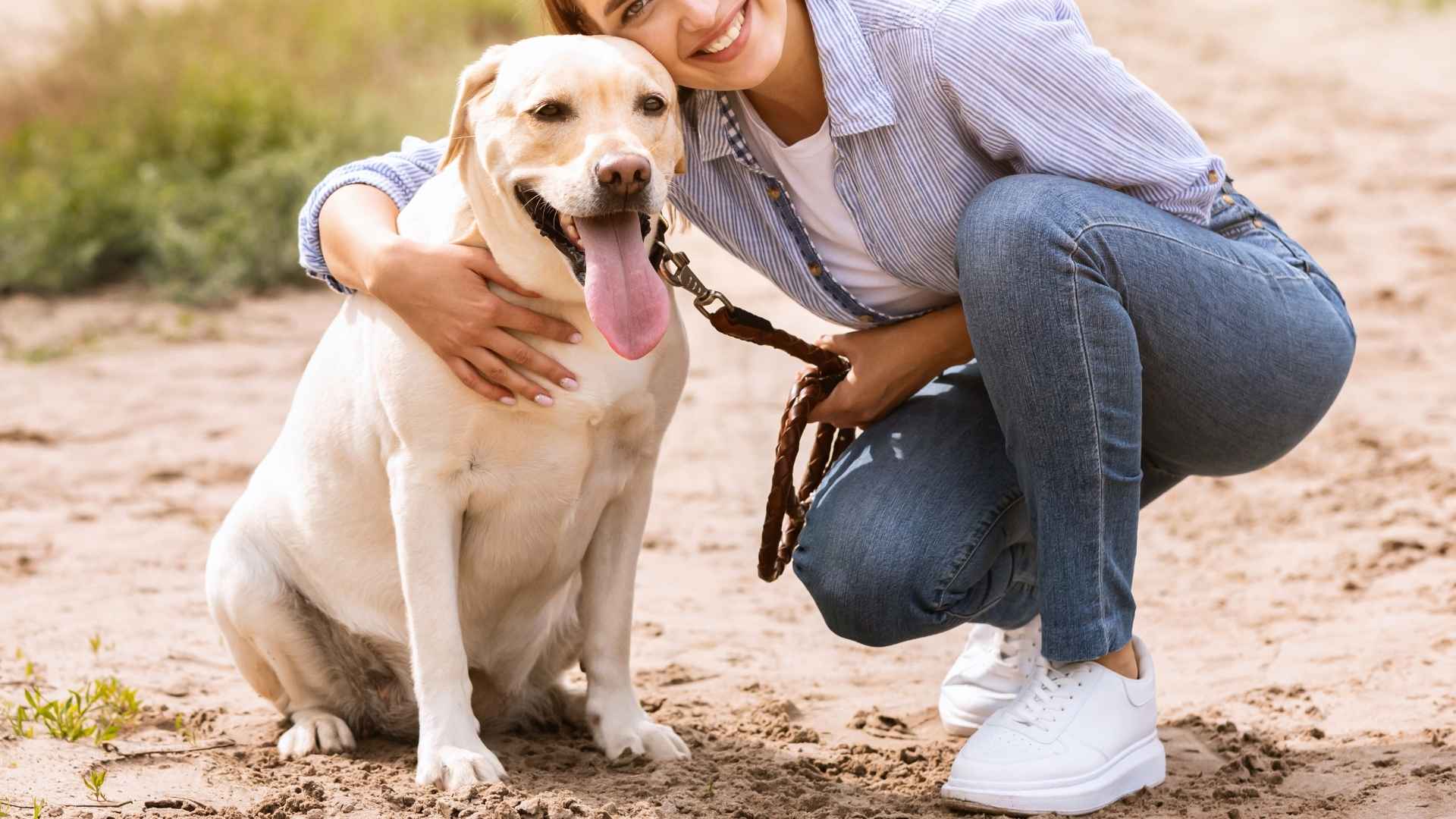We live in a world where emotional well-being is just as important as physical safety. According to the American Pet Product Association, 51% of American households have kept one or more dogs, and no doubt, they make us feel emotionally happy.
Dogs aren’t just watchful protectors, certain breeds can be great emotional support and grab the number one spot if we talk about animal-assisted therapy.
Not every dog is a fierce protector and emotional support package. That’s why we have rounded up seven such service dogs that blend these two roles in a very natural way.
Guard Therapy Dog Breeds
When anxiety hits and loneliness creeps in, who can be by your side other than a fierce and loyal dog, or even small dogs? Read about seven such four-legged emotional support animals:
1. Newfoundland
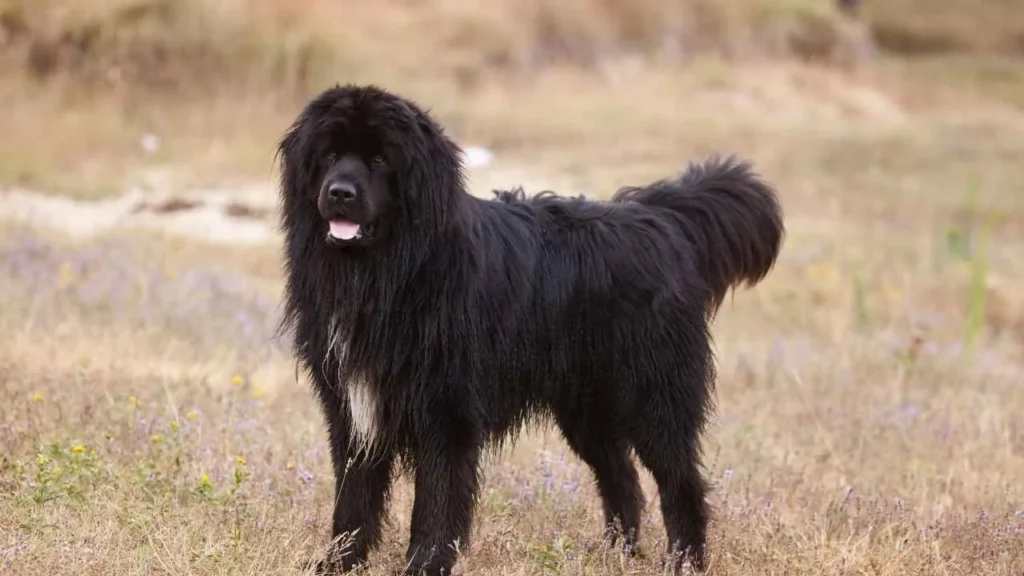
Newfoundland dogs are often referred to as “gentle giants” because they are extremely well-known for their calm demeanor and protective nature. They were originally bred for water rescues, and their loyalty and strength make them an excellent service dog.
Let’s have a look at what makes them a good therapy dog and why they might be considered the perfect breed :
Size and Strength
American Kennel Club (AKC) mentions that these dogs weigh about 100-150 pounds, and their massive build can deter many threats, and they can keep you safe in case of any danger. They are one of the most intelligent dog breeds and have the capabilities to intercept any threat.
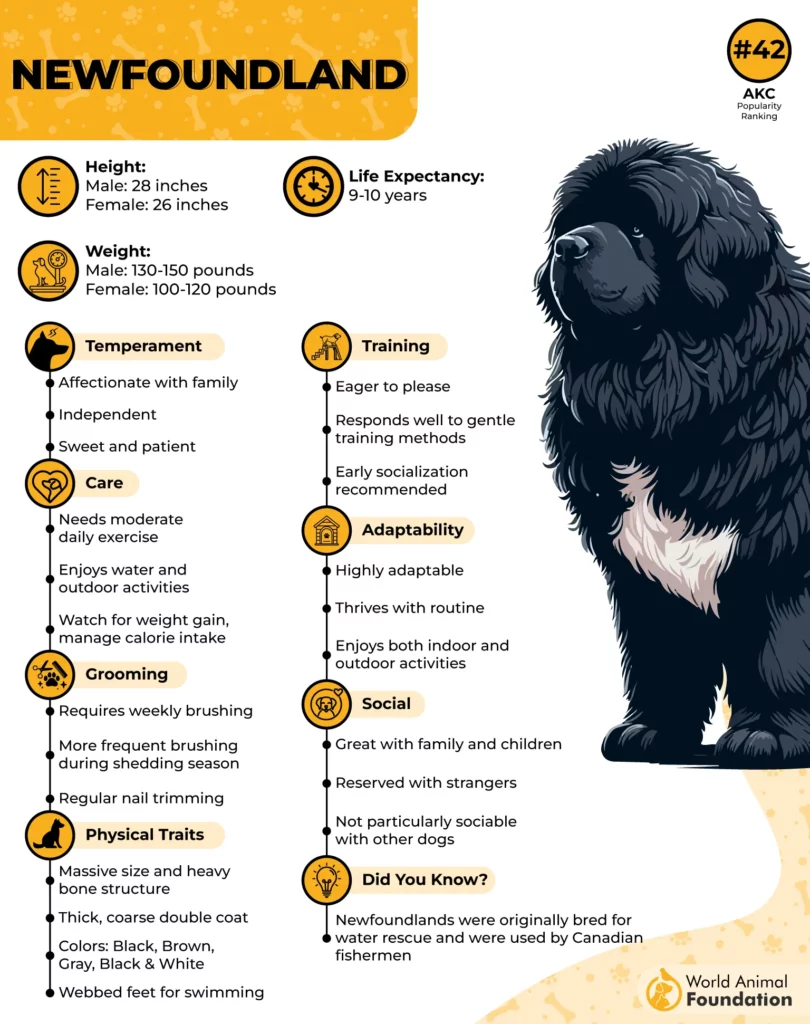
Protective INCLINATION
These dogs are not known to be aggressive, and they usually place themselves between their family and the perceived danger. They are energetic, gentle, and kind, with a stable temperament, and possess the deep desire to keep their family safe.
Therapeutic Quality
This gentle giant is also great at therapy work because of their cool, patient, and calm nature. They are happy when they are being petted and touched by their parents. Moreover, their cute personality makes them an amazing candidate as a therapy dog.
2. Saint Bernard
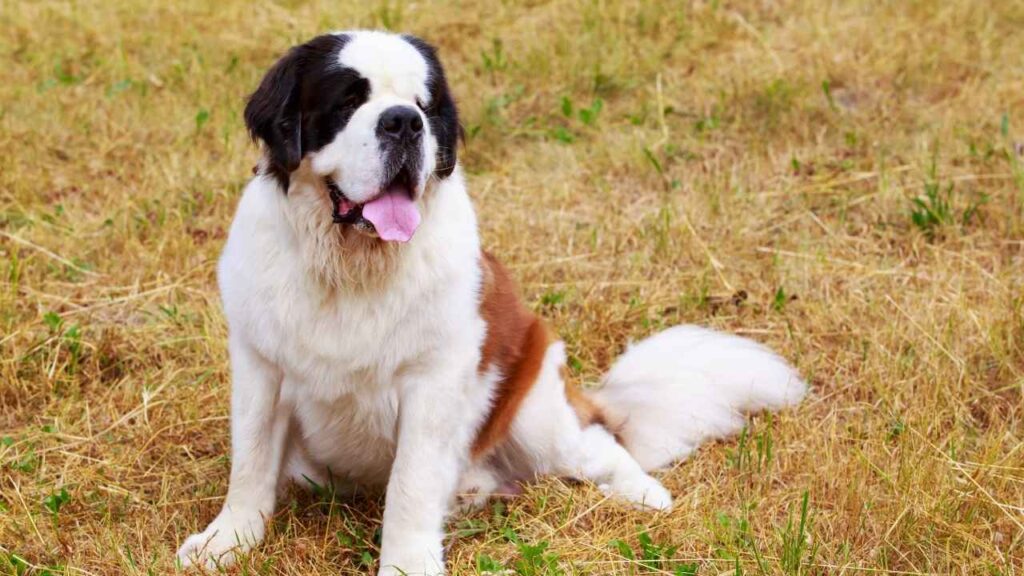
Saint Bernard dogs have a storied history as rescue dogs in the Swiss Alps and have also been associated with the armed forces. This dog breed was in service as travel rescuers, and their keen sense of direction and strong build made them almost perfect at rescuing lost travelers. Their key traits include:
Imposing Presence
Standing up to 30 inches tall and weighing as much as 180 pounds, these dogs naturally attract and command attention as guard dogs.
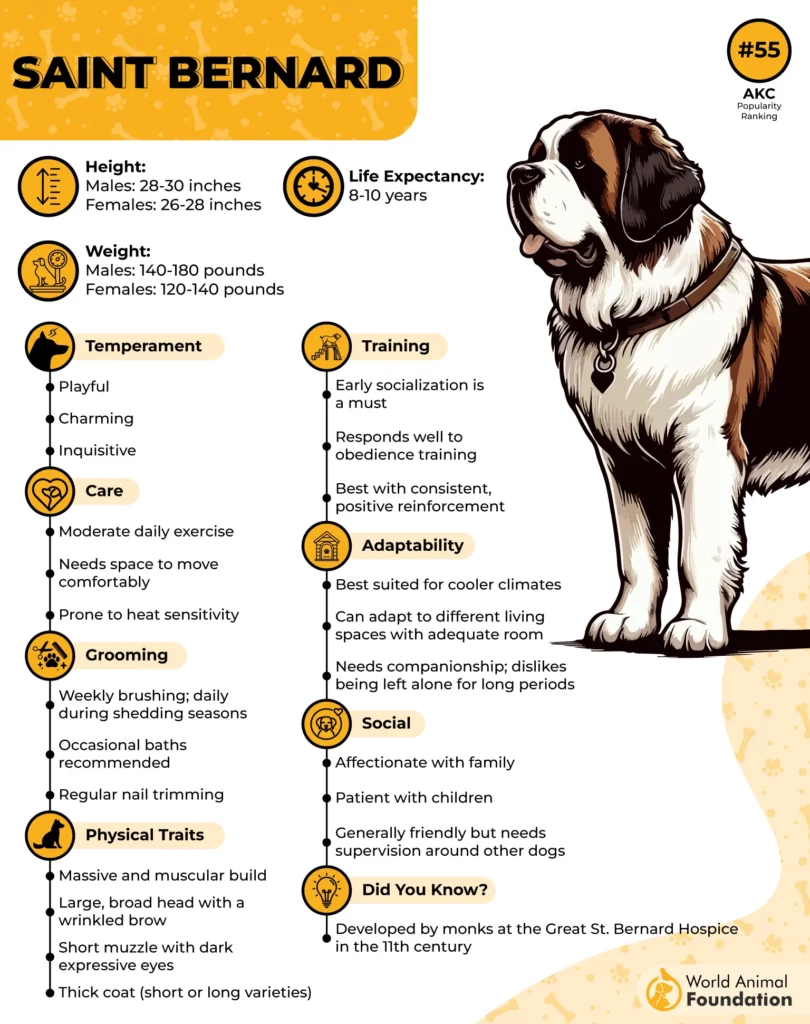
Natural Drive to Protect
They are vigilant and friendly dogs and very attached to their owners, so they are usually protective without getting too aggressive.
Certified Therapy Dogs
As per the AKC, Saint Bernards are certified psychiatric service dogs. Their calm and gentle nature makes them an ideal candidate for therapeutic scenarios, especially for kids, the elderly, or those with mental disabilities.
3. Labrador Retriever
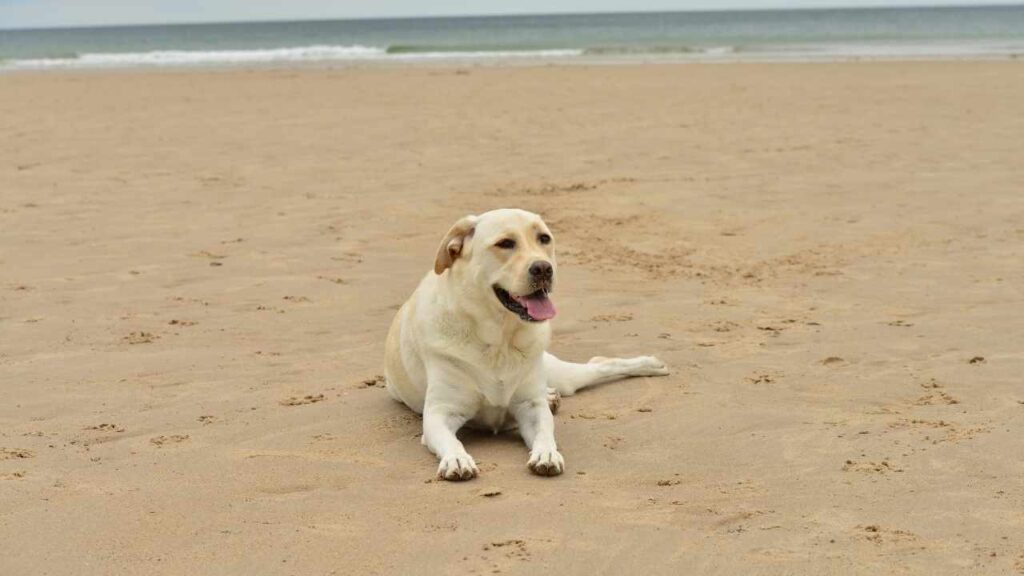
Labrador retrievers are one of the most popular dog breeds worldwide, and all dog lovers absolutely know how friendly, highly trainable, and intelligent these dogs can be. This versatility makes them a perfect and suitable candidate for different roles, be it a service dog or a family pet. Their key traits include:
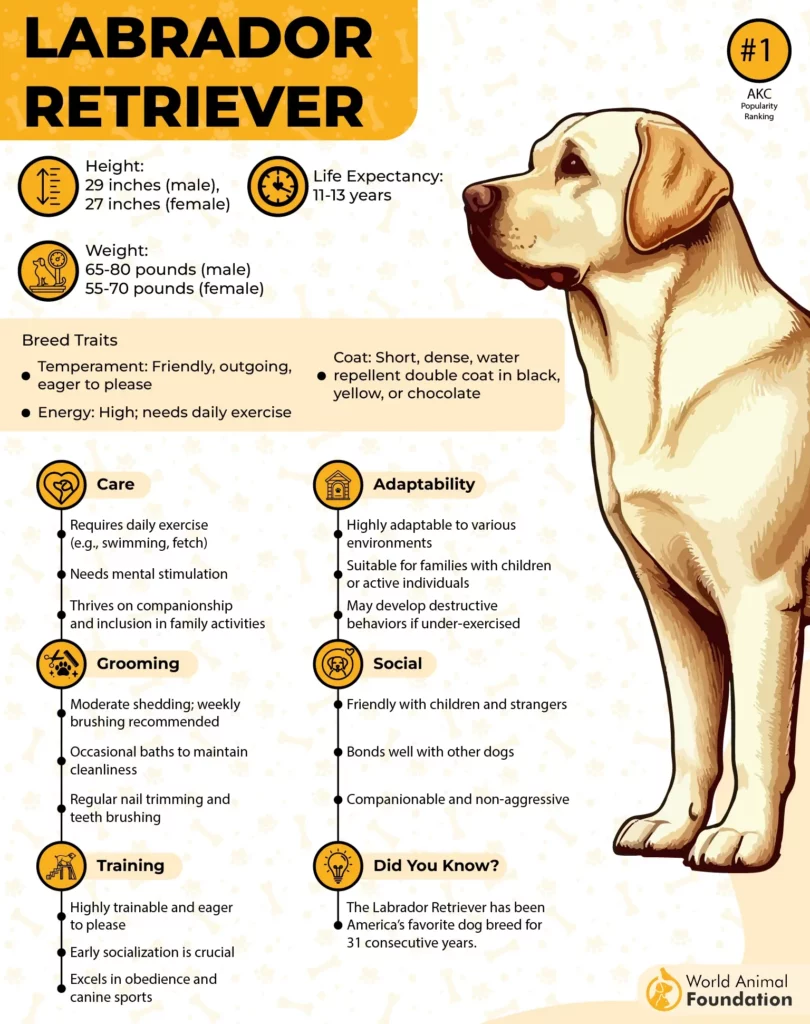
Alertness
These dogs have a friendly disposition, which means they can sometimes lag behind their guard dog nature. However, they are extremely attentive and can alert their owners about any unusual activity.
Trainability
They are very eager to please people, and this adaptability makes them easy to train. With proper training, they can be prepared for both protective and therapeutic roles.
Emotional Intelligence
Innate ability to sense and understand human emotions is what makes Labradors excellent emotional support dogs. They provide comfort to their humans when needed.
4. Doberman Pinscher
Dobermans are synonymous with protection. They have a sleek appearance and an alert demeanor, making them formidable guard dogs. However, under that vigilant exterior, there is a compassionate and loyal canine friend that you can count on for both protection and companionship. They have:
Protective Instincts
They are fiercely loyal and possess a natural instinct to protect their family. They are brave and always looking out for dangerous stimuli in their surroundings.
Intelligence
They are highly intelligent and can quickly distinguish between friendly and dangerous situations. Plus, they learn quickly and love having a job to do. With the right training, they can be super well-behaved and can help in many roles.
Emotional Help
When raised with love and positive reinforcement, Dobermans can be very sweet and low-maintenance. Due to these qualities, they are used in therapy because they connect well with people.
5. Bullmastiff
Bullmastiffs are known for their quiet confidence. They are big and muscular dogs who don’t need to bark or growl to protect. Just their calm and powerful presence is enough to make strangers think twice.
Even though they look tough, they are very gentle with the people they love. These dogs are generally known to require frequent brushing and moderate exercise. They are:
Strong and Powerful
Their size (up to 130 pounds as per AKC) and muscles help keep intruders away without the need to get too aggressive.
Calm and Quiet
Around family, these dogs are relaxed and very comfortable. Plus, they are noted to be kind and good with kids as well.
Great for Emotional Support
Their steady and outgoing personalities make them a perfect candidate for therapy settings, which makes them trustworthy guardians and loving pets.
6. Rottweiler
Rottweilers may look tough on the outside, but they are big-hearted and friendly dogs who are extremely attached to their families. In the past, they were highly trained for service tasks due to high energy and a lifestyle with regular activity. They don’t have many grooming needs, which makes them the best choice for service dog work.
Protective & Keen Eye
Pet parents are lucky to have these loving pups, as they are naturally alert and protective. They take their role as a family dog very seriously. Plus, they don’t bark unnecessarily, but if they sense a real threat, they won’t hesitate to step up.
Highly Intelligent
They are smart and love to learn. With clear rules and positive training, they pick up commands quickly and enjoy working than most other dogs. Training helps them use their strength in the right way and keeps their minds busy.
Sensitive and Loving
Even though they are strong (PetMD notes a propensity to get as much as 135 pounds in weight), they are very sensitive to their owners’ moods, making them great therapy dogs. If you are sad or anxious, a Rottweiler might come and sit next to you in peaceful quietness or rest their head on your lap.
7. German Shepherd
This is the most popular dog breed in the world, and for good reason. They are smart, loyal, and incredibly versatile. If they are being police dogs, helping in therapy, or just being a loyal family pet, German shepherds are truly the all-rounders. Their key traits include:
Always Alert
German shepherd is usually a good guard dog, as they are naturally watchful and on the lookout for anything out of the ordinary. They are always aware of their surroundings, which makes them a good protector of the people they care about.
Easy to Train
This police dog breed is one of the most intelligent in the dog world. They learn fast and love to work with their owners. That’s why you will usually see them as service dogs, in search & rescue parties, or doing good in obedience training.
Great for Comfort and therapy
Despite their working-dog image, German shepherds also have a calm and gentle side. With proper training and good socialization, they can be comforting and amazing emotional support animals or therapy dogs.
Conclusion
Getting a dog for yourself that can serve as both a fierce defender and mental health help; be it a golden retriever, Cavalier King Charles Spaniels, American Staffordshire Terrier, Cane Corso, Giant Schnauzer, Yorkshire Terriers, Golden retrievers, or any of the mixed breeds, you are in good hands with the best therapy dogs.
These dogs can offer emotional support, security, and safety, which enrich the lives of their pet parents in multiple ways, and make life a bit better and worth living.


